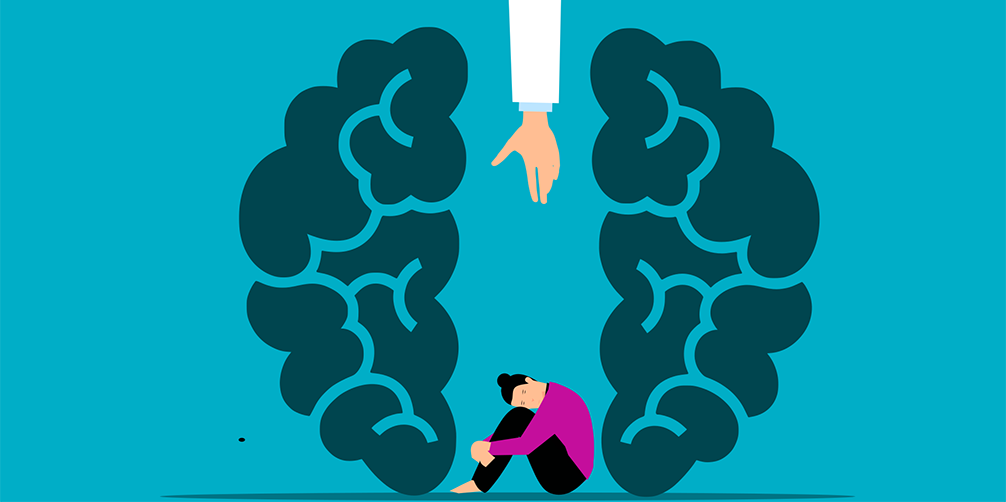
There are a many different therapeutic approaches and treatment models on offer and making a choice about this can understandably feel confusing. Below I have included a short description of these but will discuss this further with you to identify what might be the most helpful choice for you in your life right now.

Cognitive behavioural therapy is traditionally a short-term model of therapy. CBT focuses on your thoughts, feelings and behaviours and physiological sensations and aims to help to shift and reframe some of these to help manage your difficulties. A significant part of this type of therapy helps to identify the negative thinking patterns that may be driving and maintaining your problems. The focus of CBT is to provide you with the tools that you need to address your current difficulties. Whilst it also helps to identify how your past contributed to the development of these and how unhelpful beliefs and messages you learned began it is not the large focus of this approach.
Schema Therapy (ST) is an integrative approach which historically has its base in CBT. It also integrates techniques drawn from several different schools of therapy including attachment and development theory and research, Gestalt, object relations, constructivist, and psychoanalytic approaches. ST is helpful wherever we find it difficult to break unhelpful patterns that are causing us distress in some way; these may have become entrenched, chronic and repetitive. ST is a process-oriented therapy with a strong relational emphasis. It makes use of techniques from areas including interpersonal, cognitive and behavioural, including experiential techniques. ST aims to provide a corrective emotional experience that can enable deeper level ‘core’ emotional change where ones’ emotional needs are met. It strongly considers how our early life experiences contributed to our current distress and difficulties.
Compassion Focused Therapy (CFT) is a model of therapy which incorporates theories, principles, and techniques from various schools of thought including CBT, developmental theories and research, evolutionary and social psychology, neuroscience and Buddhist thinking. Its key technique is compassionate mind training which can help individuals develop and experience compassion for oneself and others through guided exercises aimed at developing a non-judgemental and critical stance. CFT helps people who are finding it difficult to manage distressing thoughts, feelings and behaviours especially when one is highly self-critical and self-attacking and or is experiencing shame.
Mindfulness-based cognitive therapy (MBCT) is an approach that combines mindfulness and cognitive behavioural therapy. It aims to help individuals better understand and manage their difficulties by looking at the thoughts and emotions that are causing and maintaining feelings of distress. MBCT helps people to learn how to recognize their sense of being and help observe themselves as separate from their thoughts and emotions to create distance from the distress they feel when difficult and challenging thoughts and moods are triggered.
Acceptance and Commitment Therapy (ACT) stems from traditional behavior therapy and CBT. It aims to help individual stay focused on the present moment, accepting thoughts, feelings and life experiences as they come without judgment, negative evaluation or effort at trying to change these. It aims to do this by helping individuals develop mindfulness exercises that support the growth of a more compassionate relationship with oneself and the difficult experiences that arise in our lives. It aims to develop an emotional openness to our experiences and help us to learn to adapt thoughts and behaviours to better align with ones values and goals.
Psychodynamic therapy is an approach that integrates different types of analytic schools of thought. It was developed from psychoanalysis and the theories of Freud and others. It aims to help individuals understand how ones current feelings and behaviours are formed through ones past experiences in childhood and through our unconscious mind and impulses. It helps to identify recurring patterns that are causing distress to your life; how you have learned to avoid distress and developed defence mechanisms that have helped you cope in some way. With this knowledge it aims to help individuals change negative patterns to help one lead a more fulfilling life.
Humanistic therapy is an approach of therapy that emphasizes the personal worth of an individual. It focuses on ones values, the creative and active nature of individuals. The approach is positive, placing a large emphasis on the human capacity to overcome painful hardships in life. It’s founded on the principle that all humans have their own subjective way of viewing the world which can impact ones choices and actions. It aims to help individuals better understand their world view and support the development of true self-acceptance.
Supportive therapy is a form of talk therapy which aims to support individuals by creating a safe non- judgmentally space to talk about the difficulties they are facing, it helps to support people to manage and improve their well-being and psychological state of mind. It aims to do this through the use of different models of psychology that focus on goal setting, encouragement, positive, reinforcement and modelling.
Bereavement Counselling offers a safe and confidential space to help explore emotional problems one might be experiencing following a bereavement. It aims to help individuals explore the impact the loss is having on their lives and ways in which they are coping and functioning with the loss.

Therapy with Dr Morina has been a big learning curve, she has taught me the concept of what needs are and why these are important in life. This was something totally alien to me and not something I was ever taught or even questioned before. Dr Morina really opened my eyes about how vital this is in becoming a more fulfilled and happier person. She has enabled me to develop skills in how to get them met for myself rather than always relying on other people in my life to make me happy. Working with her has made me see that I play a much bigger role in my own happiness than I had ever thought before. Working with her has been life changing for me.
I was going through a very difficult patch in my life when I reached out to Yllka. She helped me to make sense of the situation I was in at the time that felt very confusing and lost. Yllka was so warm, compassionate and wise. She supported me throughout the process and was very patient with me, she made me feel really safe. She also helped me understand some of my unresolved issues to a deeper level and how these issues kept repeating themselves in my life. This was something I hadn’t been able to do in my previous other therapies. I am really thankful for this, thank you Yllka!
Yllka helped me to deal with my anxiety in a very different way to the other therapy I had. She taught me new skills in managing this in a way that really worked as it got to the core of the hurt that I was feeling inside me and have needed all my life. She made me see the way I have been speaking and treating myself which has added to my anxiety. She showed me how to change this. I have always felt listened to and grounded each time I had a session with her. I have really valued my work with her and would really recommend to my friends and family.
I discovered Yllka nearly a year ago. I was in crisis and needed help. Yllka has been and still is such an enormous support to me. She has guided and coached me via zoom or phone calls initially weekly and now monthly and seen me journey through enormous emotions to reach a calmer, more sure-footed place. I can't recommend Yllka highly enough. Whether facing stress, anxiety, depression or any kind of mental turmoil, Yllka will gently clear a path through the fog and lead you to a safer place where you feel back in control. At my worst Yllka called me every day to check up on me; going above and beyond to reach out to me. She has helped me understand why my brain/mind is working the way it does and to accept and cope with big feelings. I have never spoken so openly to anyone, not even family. Yllka has an incredible ability to listen, absorb and process the information she is hearing from me and then get me to think about things from a different perspective, challenge me to question my thoughts/beliefs, give clear scientific explanations when needed, and most of all be hugely empathetic and supportive. At no point do I ever feel I am being told what to do. Instead, I feel very listened to and safe. I'm glad to say I am feeling great now and without Yllka's help I would not be in such a good place. I will still continue with my sessions as life is constantly throwing up challenges and there is so much more to learn about my mind. I only wish I had found Yllka earlier in my life.






